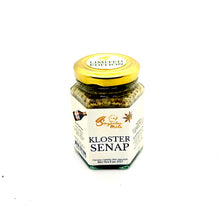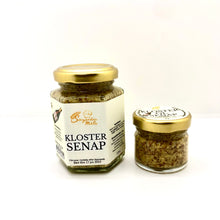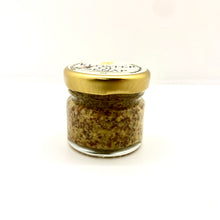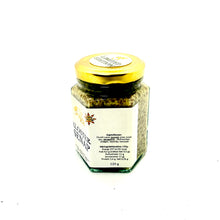
This coarse mustard will caress many aching palates as the weight of the spring sun increases and the potency of the rays warms. Soft and mouth-filling, this little gem plays with your taste buds and brightens your meals.
The mustard has been made with love and care from the monks' beer, Duvel, and is truly a heavenly creation. This coarse mustard has the power of the gods and the healing ability of the saints and brings a unique flavor to the table. With its powerful taste of church choir, Klostersenapen will awaken your palette with its soft and appetizing flavors. Each mouthful is rich and flavorful and offers you a sacred experience like no other. It is perfect with cheese, sausages, ham, hamburgers, grilled meats and grilled root vegetables and will bring its magic to your meal to a whole new level.
Don't forget to bring out Klostersenapen during the hot summer days and experience the unique comfort it brings to your meal. Whether you are a connoisseur of sauces or just looking for something a little out of the ordinary, with Klostersenap you can be sure to get a divinely delicious experience straight to your table. Experience the special charisma of Klostersenap today - it is like no other!
A monk's brew in heavenly shining gold, as the base of this mustard. A sacred mixture of a rarely seen kind with the power of gods and the healing ability of saints. Powerful like a church choir, this rich appetizer takes over your entire being and gives you a well-deserved serenity. A hybrid of former monks' concoctions and youthful curiosity, you are offered here a perplexing but delightful experience.
In Belgium, cheese is a very common accompaniment to the beer and often cubes of young Gouda are served with mustard. Here you get the flavors of both monastery beer and mustard to try with the cheese. A tasty mustard that plays with the taste buds when you are grilling, on a picnic or when you are just enjoying a sandwich in the kitchen.
Goes well with cheese, sausages, ham, hamburgers, grilled meat, grilled vegetables.
Mustard is a spice rich in history! It has been used for a long time and, according to some, mustard is the oldest of all spices. In Egypt, for example, the stately pharaohs took mustard seeds to their graves. Then it was the Romans who first ground the mustard seeds and later mixed them with wine or vinegar.
But why is it called mustard? Elof Hellquist, who has written the Swedish etymological dictionary, believes that the word originates from Egypt. Then, with the Greek sinapi and the Latin synapsis, it became mustard in Swedish. In English, where it is called mustard - the word probably comes from the Norman mustarde and the Latin mustum (must, young wine). And very true – the mustard seeds were first ground into a paste and finally must in wine or vinegar. Mustard has also for a long time been used in medicine. Everything from scorpion bites, toothaches and blocked sinuses were cured with mustard.
There are many different mustard mixes and the two largest producing countries are Nepal and Canada. These two countries together account for half of world production.
We only use mustard seeds from Österlen.
Ingredients: Duvel (water, barley malt , sugar, hops, yeast) , mustard seed , raw cane sugar, vinegar, rapeseed oil, sea salt
Nutrition declaration 100g: Energy 337 kJ/81 kcal; Fat 8.5 g (saturated fat 0.5 g); Carbohydrates 11 g (sugars 11 g) Protein 5.6 g, Salt 0.56 g









